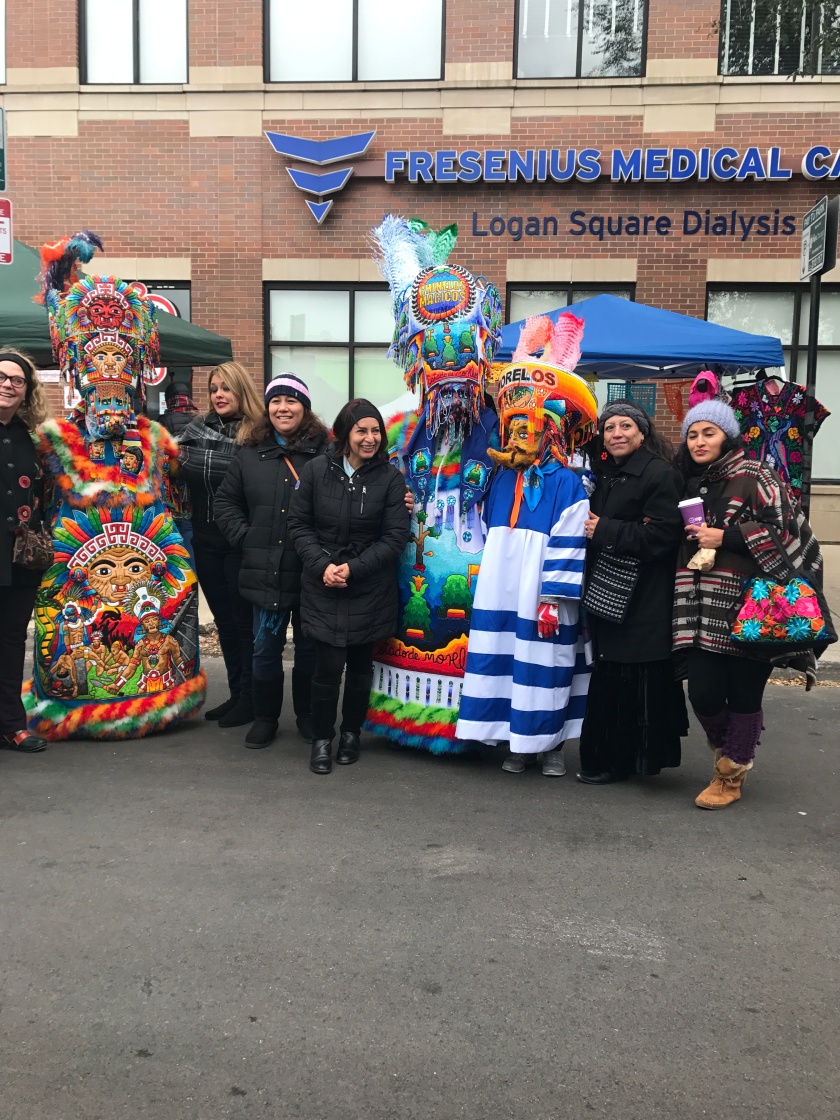“To survive the Borderlands
you must live sin fronteras
be a crossroads.”- Gloria Anzaldua
On this chilly Saturday a few days before Halloween and dia de los muertos we met for a more relaxed session to spend more time allowing youth to get to know each other. As we go further into our programming a certain degree of trust and respect is needs to develop to ensure emotional safety and confidentiality as we begin to learn more about our family history and experiences. We read two poems, To Live in the Borderlands by Gloria Anzaldua and Ending Poem by Aurora Levins Morales and Rosario Morales. All Latina poets who express their feeling of ambiguity as they navigate life through two cultures, the ones they are living in and the ones they came from. We are challenged to hold and cross these two very different worlds in our everyday lives never feeling like we are “enough of” or validated by.
An example during discussion was when I shared how at times I never felt “Latina” enough and embarrassed my mother chose not to teach me Spanish. Growing up my mother explained to me that we “live in America” so my priority is to learn English. This often made me feel left out till this day and left with feelings of inadequacy because I have to carefully choose how to communicate with others rather than naturally joining in on some chisme. As I got older my mom explained to me how happy she was that I grew up loving to read and stay in school because she struggled as a kid in school with due to the language barrier and made her hate education. After I shared that, another student exclaimed “wow, I thought I was the only one, I never heard anyone say that before.”
The poems reflection of living between two worlds inspired me invite students to celebrate dia de los muertos, which highlights this notion duality between life and death. Many in the U.S seem to simply dia de los muertos as another type of “Halloween” celebrated by Mexican and Latinx cultures. We wanted to spend time learning more about what this celebration really means and how it honors our ancestors. From the first Brown in Chicago group, one of our culminating projects was to create a large altar to honor our passed loved ones and to highlight members of our family that first migrated to the U.S. This alter includes pictures, trinkets, candles, flowers and hand painted sugar skulls. We spend over an hour listening to salsa and adding pictures, more skulls and little notes of intention and cleaning the altar as we joined new ancestors to our LSNA familia.
We ended the meeting early to walk over and support Faces of Logan Square, a free 2-day community festival that supported local artesanas to sell beautiful pieces of jewelry, clothing and other creations that are handmade. We ended our meeting with the chance to watch indigenous folklorico dancers perform.






